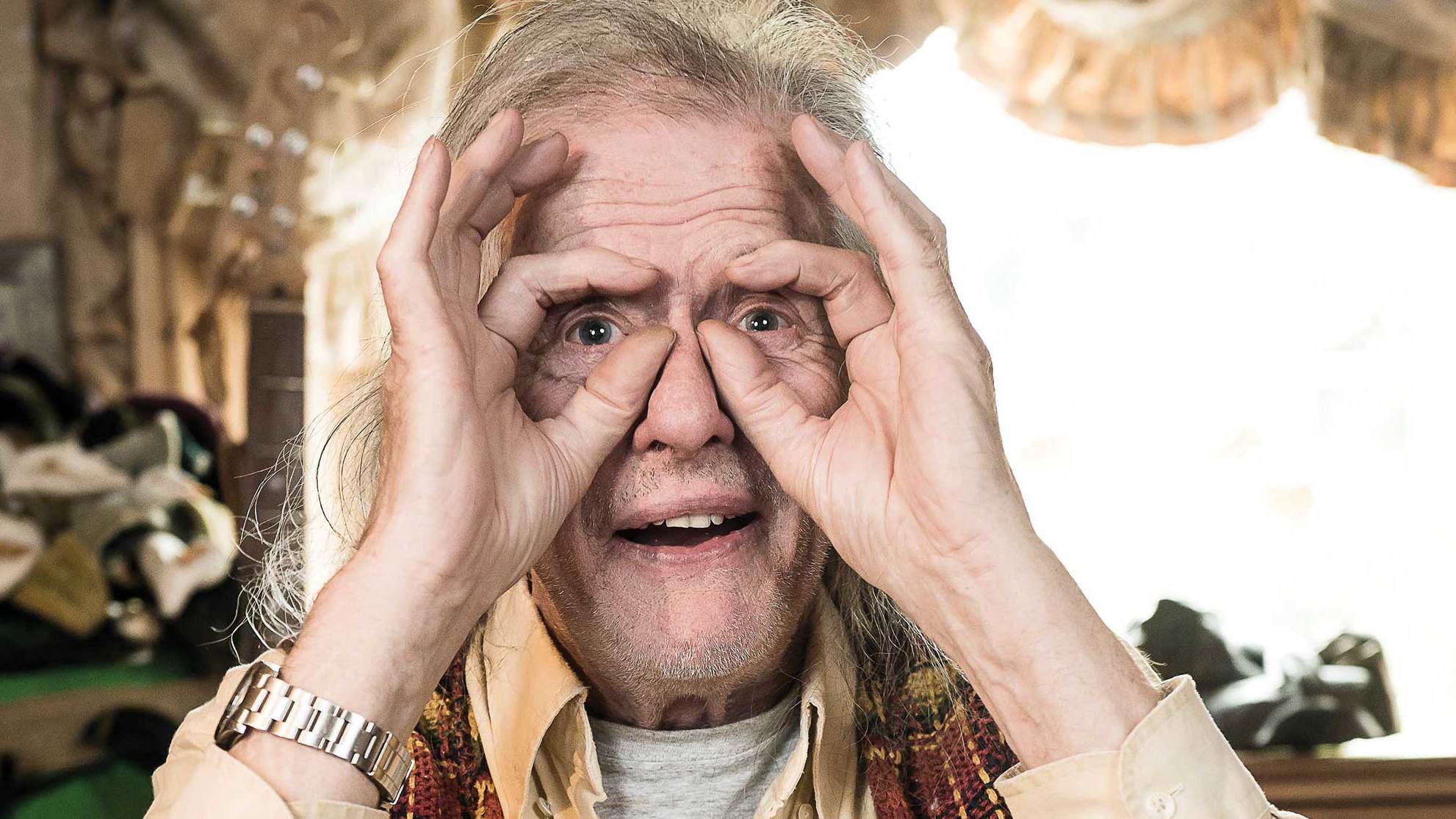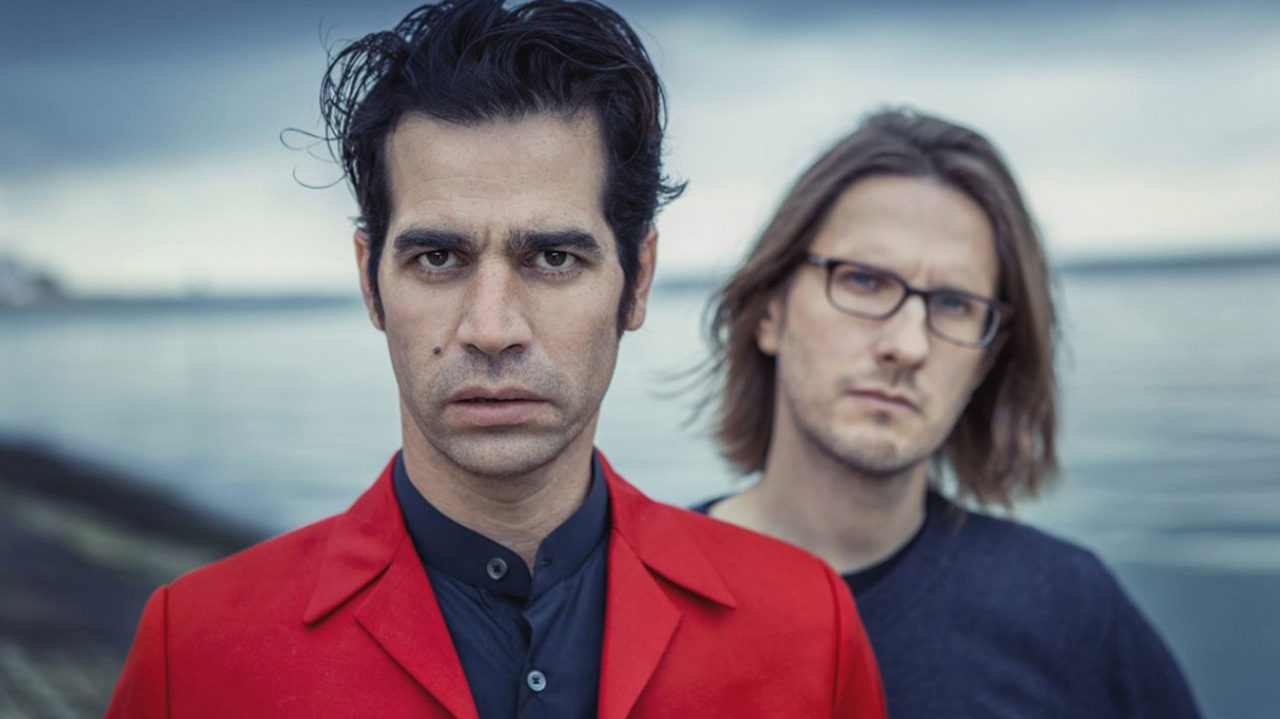What Mike Oldfield producer Tom Newman really thinks about Rob Reed's Sanctuary
“It’s what Mike should be doing now…” Mike Oldfield producer Tom Newman on Sanctuary II.

Select the newsletters you’d like to receive. Then, add your email to sign up.
You are now subscribed
Your newsletter sign-up was successful
Want to add more newsletters?

Every Friday
Louder
Louder’s weekly newsletter is jam-packed with the team’s personal highlights from the last seven days, including features, breaking news, reviews and tons of juicy exclusives from the world of alternative music.

Every Friday
Classic Rock
The Classic Rock newsletter is an essential read for the discerning rock fan. Every week we bring you the news, reviews and the very best features and interviews from our extensive archive. Written by rock fans for rock fans.

Every Friday
Metal Hammer
For the last four decades Metal Hammer has been the world’s greatest metal magazine. Created by metalheads for metalheads, ‘Hammer takes you behind the scenes, closer to the action, and nearer to the bands that you love the most.

Every Friday
Prog
The Prog newsletter brings you the very best of Prog Magazine and our website, every Friday. We'll deliver you the very latest news from the Prog universe, informative features and archive material from Prog’s impressive vault.
“When Rob sent me the stems of the first Sanctuary record it was a nostalgic feeling for me, because it sounded so much like working with Mike in the 70s. But when he sent me the second one it was a different feeling because it was the kind of thing I felt maybe Mike should be doing now.
“I didn’t really know Rob at all – I’d only met him once I think – but I was very aware he must have had some extraordinary sensitivities in him because of the way the tunes were written. Although they were reminiscent of an Oldfield structure, I felt he went deeper than the usual Oldfield plagiarists do. There are a lot of people that blatantly copy what they think he would do. But for some reason this made a much more emotional contact with me.
“On this record, Rob sent me some initial stems, and I went through a whole load of editing and playing around with it, reconstructing the dynamics to make it more orchestral. One of the first things I said to Rob was that some of the nicest bits of melody and little licks and hooks were just not maturing. The hooks weren’t going into the ear properly because he shifted onto the next bit out of a paranoia of boring people. So the first thing I did was stretch some bits and shorten bits and reconfigure it in a way to give it a seductive, leading-you-into-something feel rather than chopping and changing all the time.
What Rob’s doing is
very interesting…
“I sent him that mix and he then proceeded to modify all the stuff he had to fit in with the editing I’d done, and then he sent me a mix of what he considered to be his final mix. But I found that it had lost some of its soul. I just said, ‘The music’s still great but you’ve blown it. I think my mixes are what you mean the music to sound like.’ So he went back and listened to my mixes and had to go back and remix it with a different set of rules in his mind.
“When we were doing Tubular Bells we had a raft of people standing round the mixer being told when to turn such and such a knob at a certain time because we didn’t have enough hands.
“But when you’re reliant on a computer screen the technology starts to control you. So he kind of went back through it all without the computers, and the result was worth it.
Sign up below to get the latest from Prog, plus exclusive special offers, direct to your inbox!
“Rob has grown up without the diva gene. You can look him in the eye and tell him ‘that was shite’, and he won’t get all sulky. He’s a very easy man to work with. I used to have similar battles with Michael, but he was more ego-driven.
“He knows what he thinks he wants, but at the time in the early days he had no idea of orchestral dynamics but I was trying to help him introduce that into rock music, which in those days was quite hard do get because you were restricted by the noise ratio of the medium it ends up on – tape and then record. So you really only had a 50-60db dynamic range.
“Michael was very difficult to work with on that level – we had lots of disagreements but they all worked out OK because there was a element of compromise which was what made the eight or nine albums I made with him actually work. We had the same sort of compromises with Rob’s records – it was just much easier to reach agreement!
“Now you can do so much more with technology, but the audience doesn’t have the attention span to listen to a long piece of music without looking at the telly or their iPhone! It’s very difficult to get people to listen to something more than half a minute long, ha!
“So what Rob’s doing is very interesting because I think at the end of the day he’s expanding the tradition that Michael set up within the prog rock genre of making a long classical piece of music in a rock idiom. That’s not really been done much even within prog rock circles so it’s great to hear someone have another crack at it. And I think he’s done a great job.”
Johnny is a regular contributor to Prog and Classic Rock magazines, both online and in print. Johnny is a highly experienced and versatile music writer whose tastes range from prog and hard rock to R’n’B, funk, folk and blues. He has written about music professionally for 30 years, surviving the Britpop wars at the NME in the 90s (under the hard-to-shake teenage nickname Johnny Cigarettes) before branching out to newspapers such as The Guardian and The Independent and magazines such as Uncut, Record Collector and, of course, Prog and Classic Rock.

